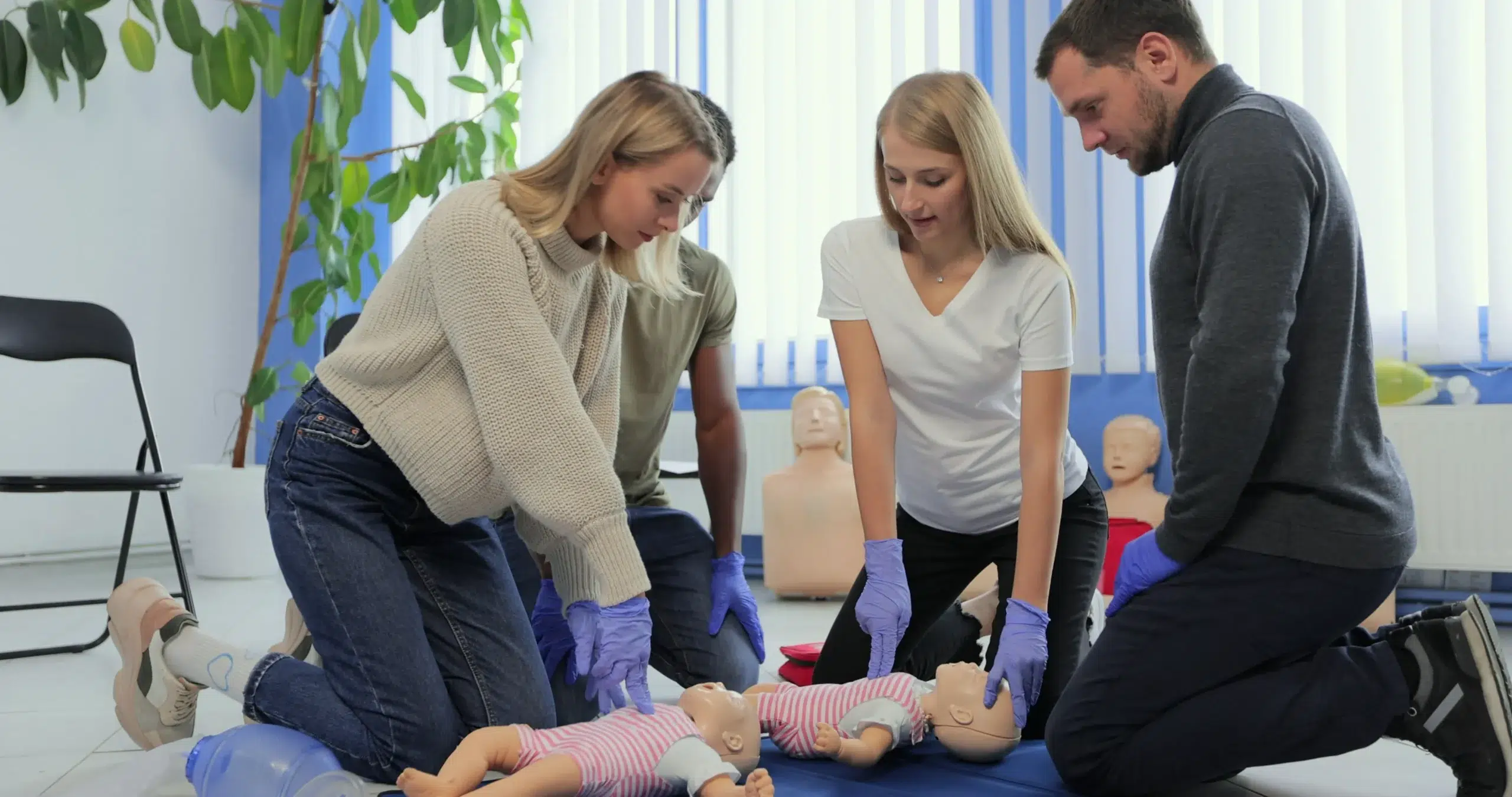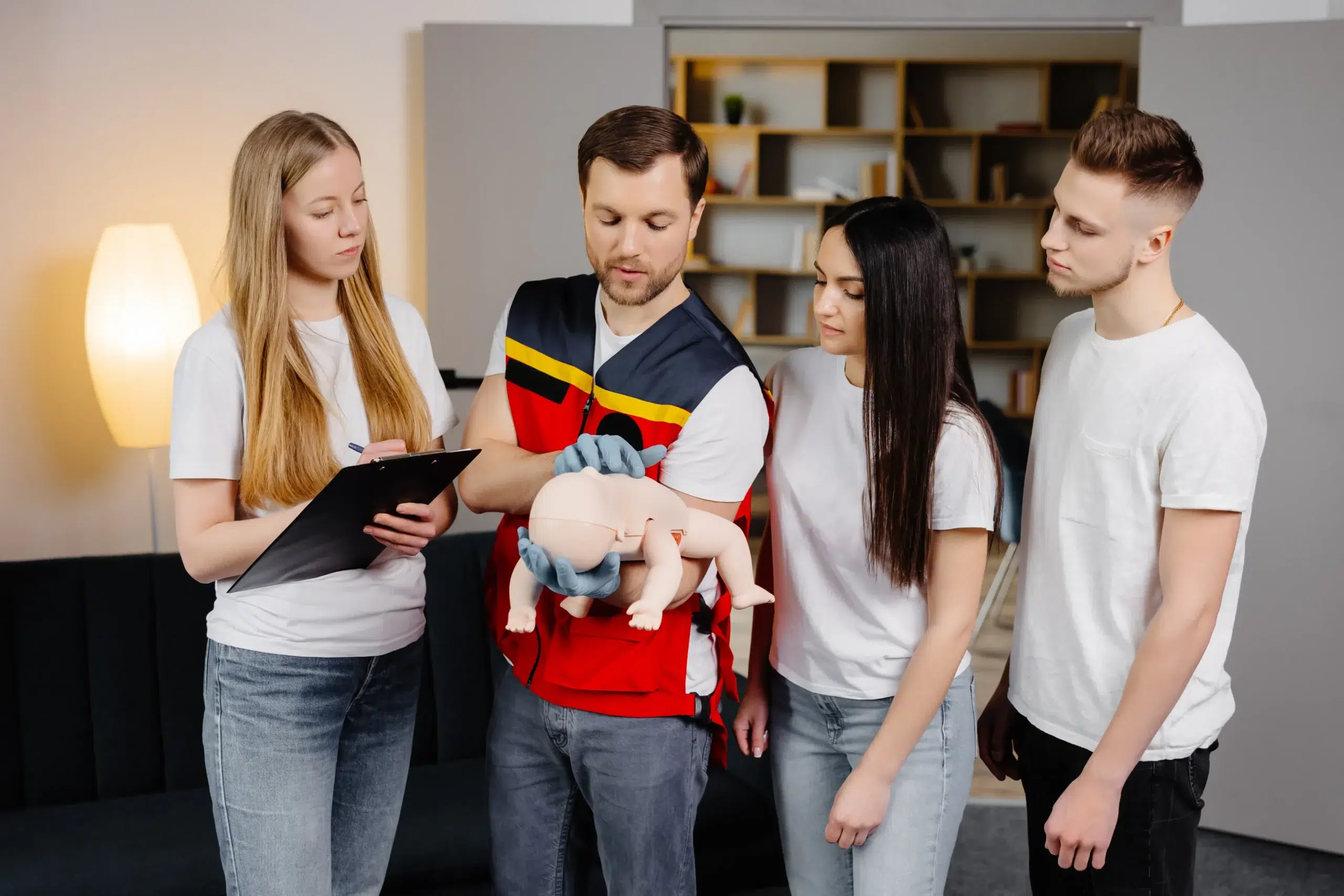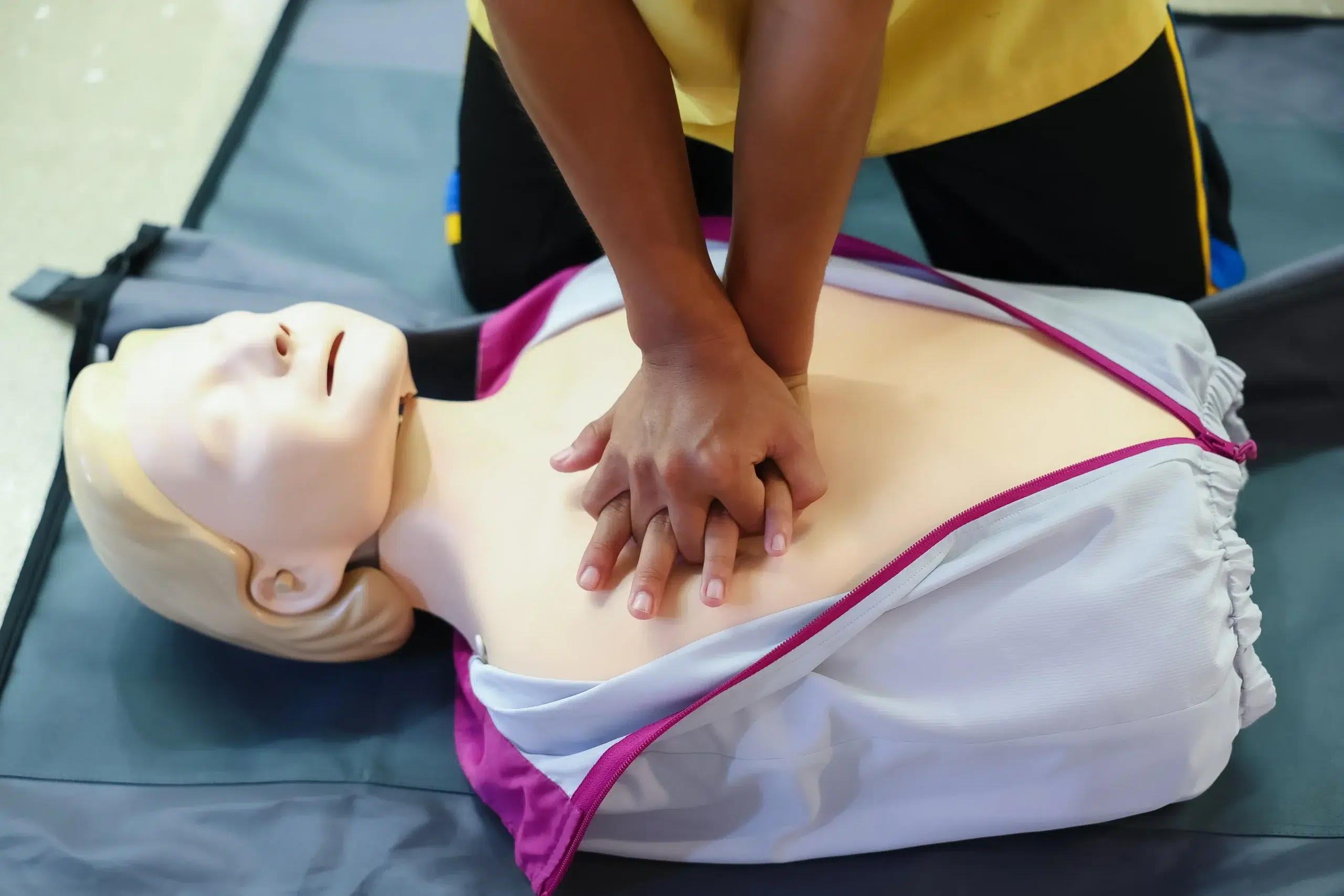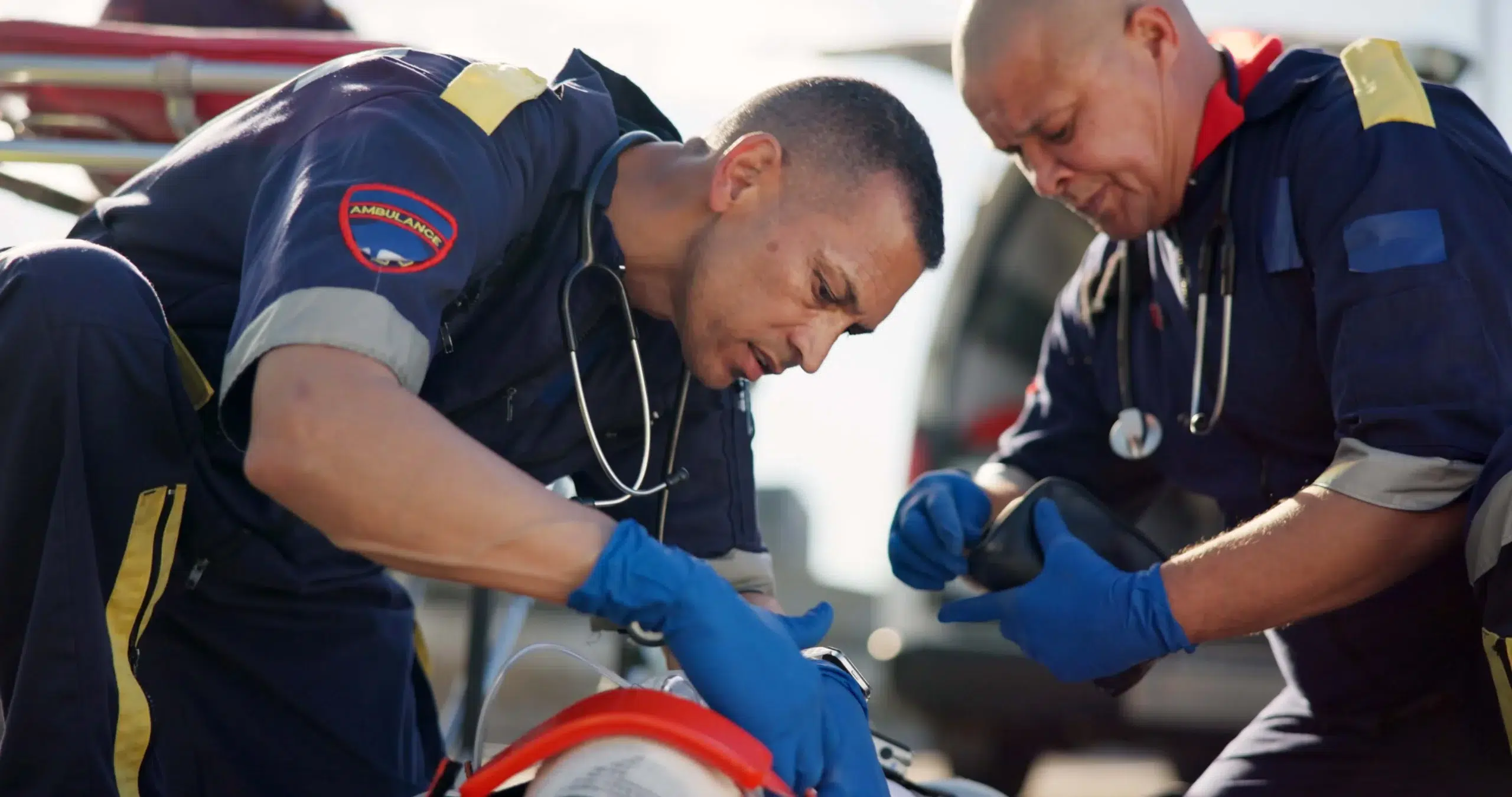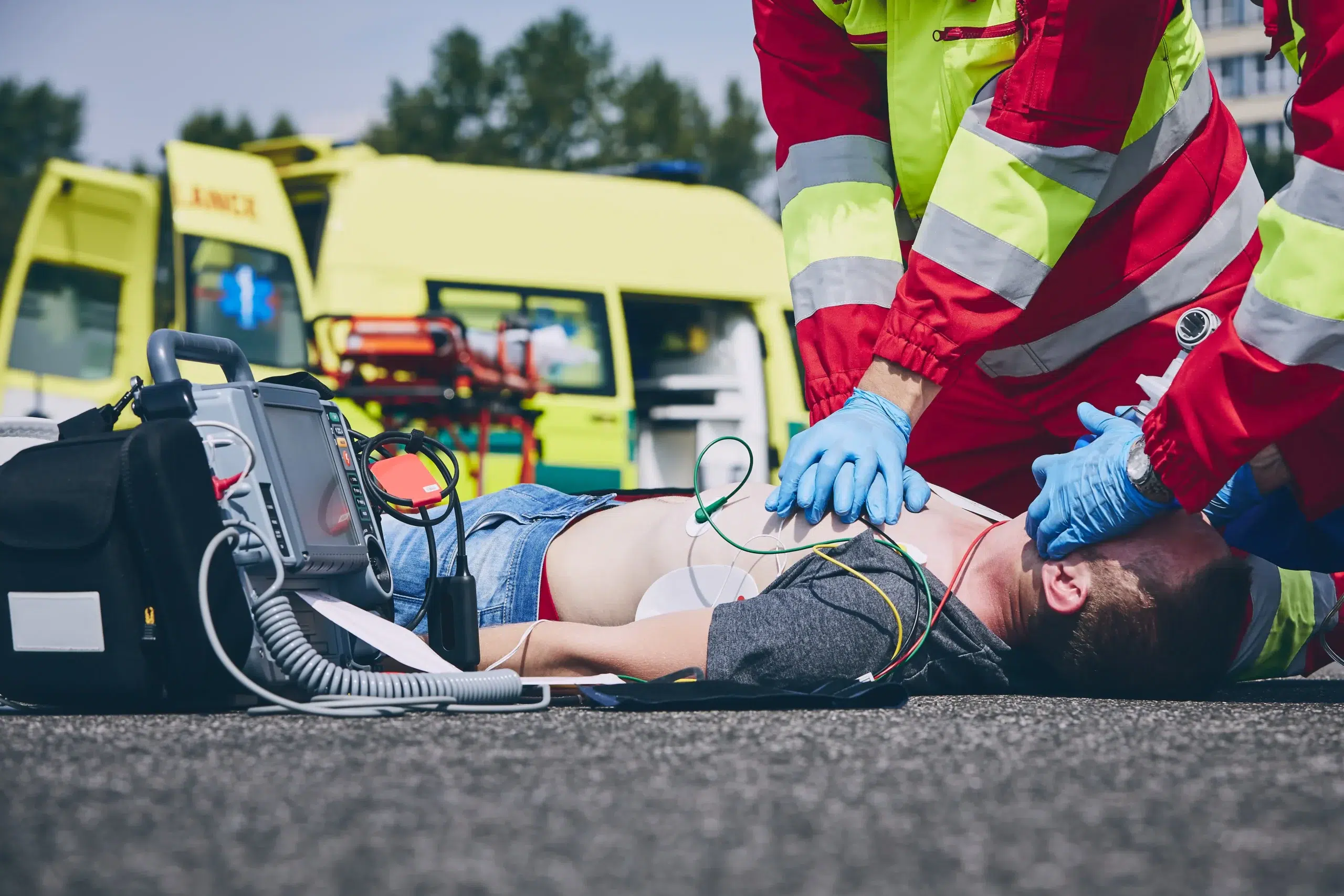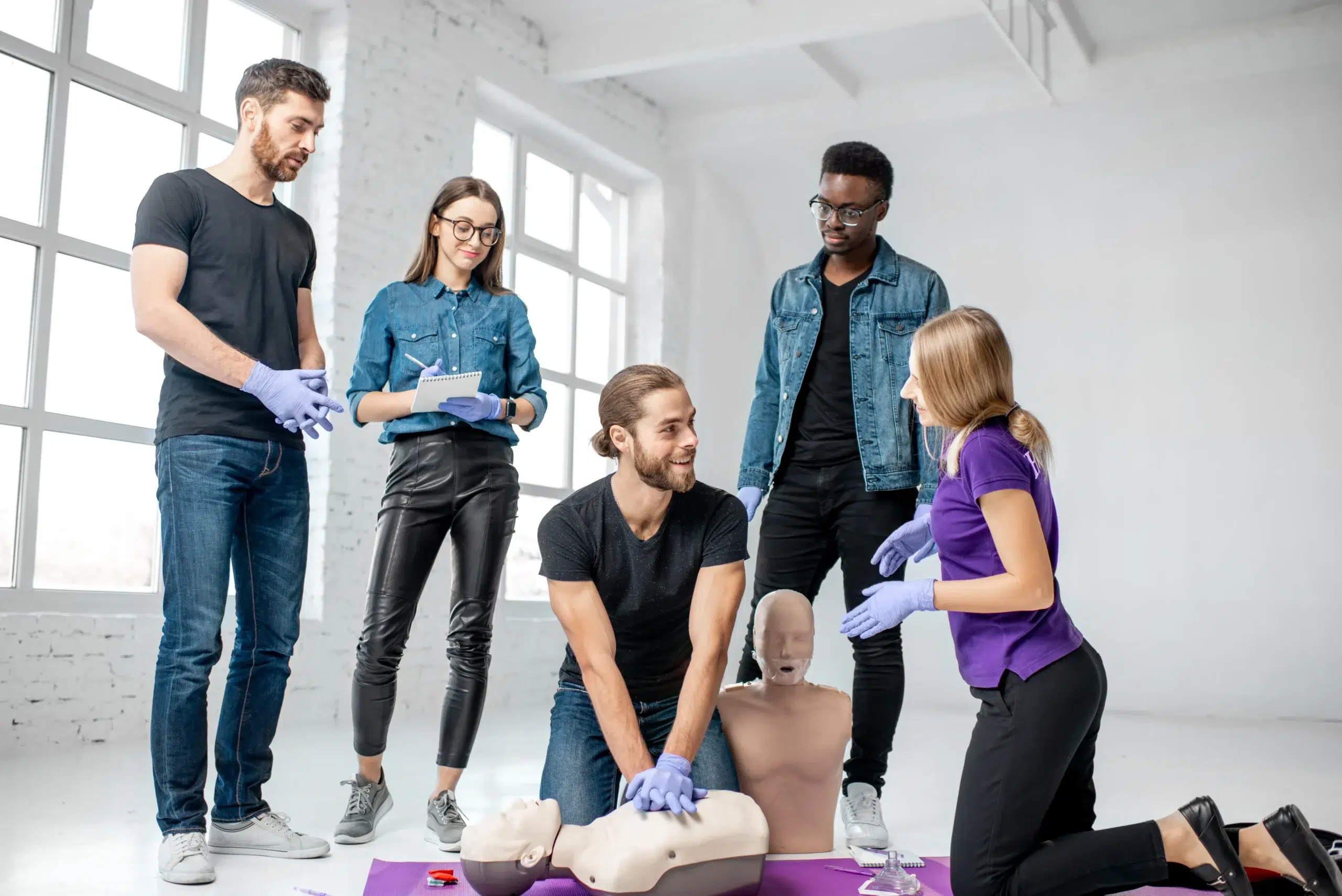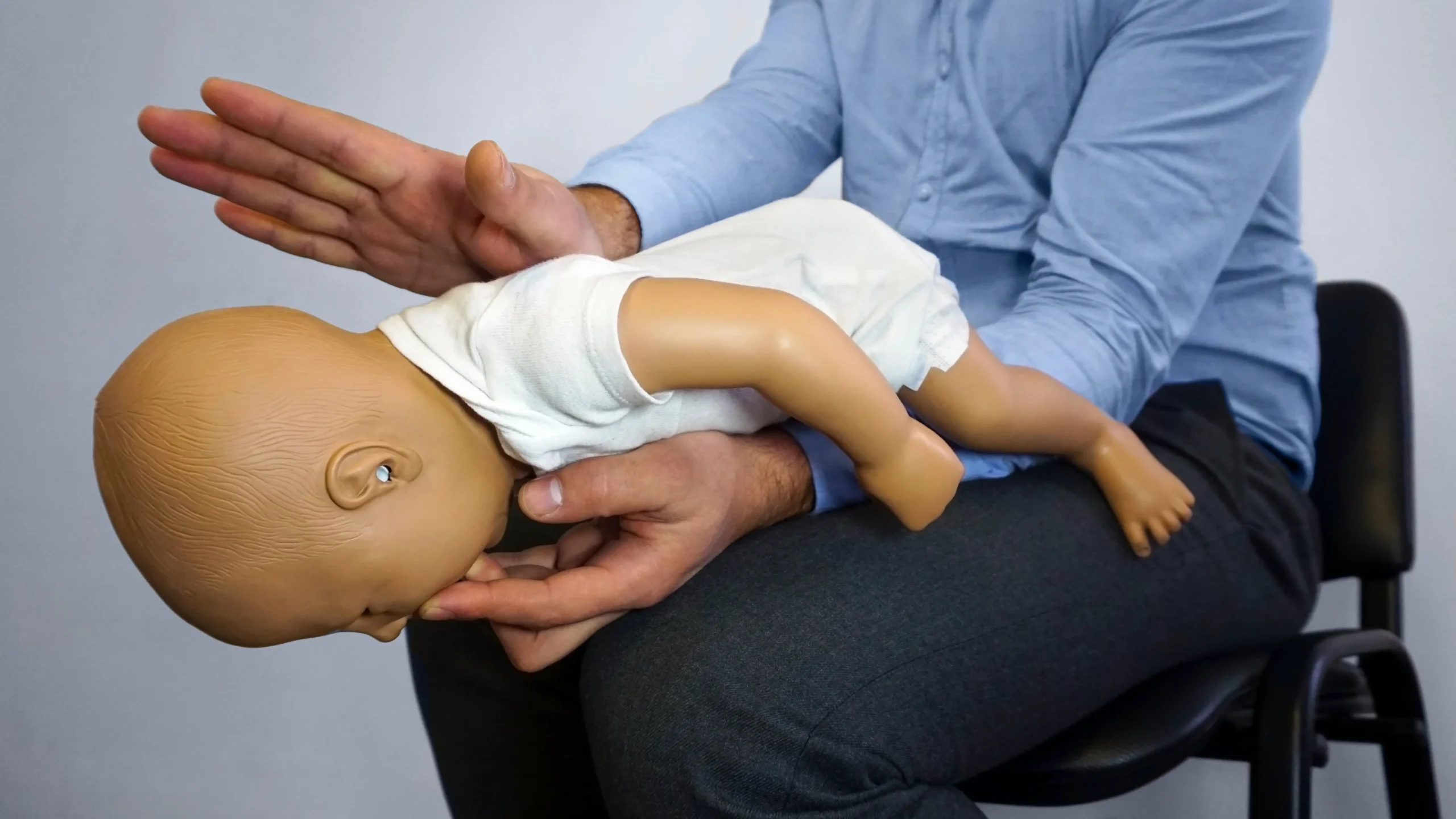Emergencies can happen anytime, anywhere. Being equipped with the skills to respond effectively can make all the difference. This guide is designed to help you find the perfect CPR courses in Fremont, whether you’re a seasoned healthcare professional or new to the world of emergency response. We’ll explore the various CPR certifications available, including BLS, ACLS, and PALS, and discuss the importance of hands-on training. We’ll also cover the costs of CPR training, highlight available discounts, and help you find a class that fits your busy schedule. Let’s equip you with the knowledge and skills to save a life.
Key Takeaways
- CPR Certification Empowers You to Act: Learning CPR and becoming certified provides you with the skills and confidence to respond effectively during medical emergencies, significantly improving the chances of a positive outcome.
- Find the Right Course for Your Needs: Various CPR courses cater to different needs and experience levels, from basic CPR and first aid to specialized certifications like BLS, ACLS, and PALS. Consider your individual requirements and choose a course that aligns with your goals.
- Hands-On Practice Makes Perfect: Practical training with certified instructors and real-life simulations is crucial for mastering CPR techniques. Select a course that emphasizes hands-on learning and skills assessment to ensure you’re fully prepared for any emergency.
What is CPR and Why is it Important in Fremont?
Cardiopulmonary resuscitation (CPR) is a life-saving technique used when someone’s heartbeat or breathing has stopped. It involves chest compressions and rescue breaths, which help circulate oxygenated blood to the brain and other vital organs until professional medical help arrives. Learning CPR empowers you to respond effectively in these critical moments.
In Fremont, knowing CPR is incredibly important. The American Red Cross highlights how CPR can dramatically increase someone’s chance of survival after cardiac arrest. Given the prevalence of cardiac arrests across the US, the need for people trained in CPR is undeniable. You can find CPR classes in Fremont taught by experienced instructors. Learning CPR equips you with a vital skill and allows you to contribute to a safer Fremont, potentially saving a life when it matters most.
CPR Courses in Fremont: What Are Your Options?
Finding the right CPR class can feel overwhelming with so many choices. This section breaks down the different types of CPR courses available in Fremont so you can choose the best fit for your needs. Whether you’re a healthcare provider, a concerned parent, or simply want to be prepared for emergencies, there’s a course for you. Safety Training Seminars offers a variety of CPR and first aid certification courses in nearby Newark.
Basic Life Support (BLS)
BLS certification is the foundation for anyone in healthcare. BLS courses cover core life-saving skills for adults, children, and infants, including CPR, recognizing and responding to life-threatening emergencies, using an AED, and relieving choking. These courses are essential for medical professionals like doctors and nurses, but they are also valuable for anyone who wants to be prepared to help in a crisis, including teachers, coaches, and childcare providers.
Advanced Cardiovascular Life Support (ACLS)
ACLS certification goes beyond the basics of BLS. It’s designed for healthcare professionals who manage cardiac arrest and other cardiovascular emergencies. These courses cover advanced airway management, pharmacology, and team dynamics during resuscitation. ACLS training is essential for physicians, nurses, paramedics, and other healthcare providers who are part of advanced life support teams.
Pediatric Advanced Life Support (PALS)
For healthcare providers working with infants and children, PALS certification is a must. These courses focus on the specific needs of pediatric patients in emergencies, from recognizing early signs of respiratory distress to managing cardiac events in children. PALS training equips healthcare professionals, such as pediatricians, pediatric nurses, and emergency medical technicians, with the knowledge and skills to provide effective care in critical situations.
First Aid and CPR
Combining first aid and CPR training provides a well-rounded approach to emergency preparedness. These courses teach you how to respond to a wide range of medical emergencies, from minor injuries like cuts and burns to life-threatening situations like heart attacks and strokes. Learning both first aid and CPR empowers you to confidently handle various medical scenarios and provide assistance until professional help arrives. This combined training is valuable for everyone, especially parents, caregivers, and those working in fields like education and childcare.
CPR Training Costs in Fremont
Finding the right CPR class is important, but understanding the associated costs is equally crucial. Let’s break down CPR training costs in Fremont so you can find a course that fits your budget.
Course Costs
CPR course fees vary depending on the type of certification you need. Basic Life Support (BLS) classes are generally less expensive than more advanced courses like Advanced Cardiovascular Life Support (ACLS) or Pediatric Advanced Life Support (PALS). Check directly with training providers like Safety Training Seminars for their most up-to-date pricing. Safety Training Seminars offers a low price guarantee, ensuring competitive rates.
Discounts and Group Rates
Many CPR training providers offer discounts for group registrations, making it a cost-effective option for workplaces, community groups, or families learning together. Safety Training Seminars provides discounted group rates for various courses, including CPR, first-aid, BLS, ACLS, and PALS, in Fremont. Contact providers directly to discuss group discounts and available options.
Low Price Guarantees
Look for training centers that offer a low price guarantee. This ensures you’re getting the best possible value. Safety Training Seminars backs its commitment to affordability with a low price guarantee, giving you confidence in receiving high-quality training at a competitive price. Understanding costs helps you make informed decisions about your CPR training.
Find a CPR Class That Fits Your Schedule
Juggling work, family, and other commitments can make it tough to fit in extra training. We get it. That’s why at Safety Training Seminars, we offer CPR classes in Fremont, Newark, and San Jose designed to work with your busy schedule.
Daily Classes and Extended Hours
Safety Training Seminars offers American Heart Association (AHA) certified courses in CPR, BLS, ACLS, PALS, and First Aid. Classes are available seven days a week, with extended hours from 8 am to 10 pm. This means you can find a class that fits your needs, whether you’re a student, a working professional, or a busy parent. Check our BLS course schedule to see what’s available.
Weekend and Evening Classes
We understand that weekdays can be hectic. That’s why we also offer weekend and evening CPR classes, including Saturdays and Sundays. Our low price guarantee ensures you’re getting the best value. Signing up for a weekend or evening class is quick and easy through our online enrollment system. We also offer discounted group rates for businesses, organizations, or groups of friends.
Meet Your CPR Instructors
Knowing who will lead your training can make all the difference in your learning experience. At Safety Training Seminars, we prioritize experienced and certified instructors dedicated to providing high-quality instruction.
Certified AHA Instructors
Safety Training Seminars is a woman-owned AHA Training Center committed to delivering top-notch American Heart Association courses. This means our instructors are AHA-certified professionals, upholding the stringent standards set by the AHA. You can feel confident knowing your training aligns with the latest, evidence-based guidelines for CPR, BLS, ACLS, PALS, and First Aid. This commitment to excellence ensures you receive comprehensive training and empowers you to respond effectively in real-life emergencies.
EMT and Firefighter Trainers
Our instructors’ experience extends beyond the classroom. Many of our trainers are also EMTs and firefighters, bringing real-world experience to their teaching. They offer practical insights and share firsthand knowledge of emergency situations, creating a more engaging and relevant learning environment. This practical approach deepens your understanding of how to apply your skills under pressure. You can learn more about our instructors and their qualifications on our website.
Hands-On CPR Training: What to Expect
CPR training isn’t just about memorizing steps; it’s about developing the skills and confidence to act in a real emergency. That’s why hands-on practice is so crucial. Let’s explore the different training formats available and what you can expect from each.
In-Person Classes and Skills Assessments
In-person CPR classes offer the most comprehensive learning experience. These classes, like the AHA BLS, ACLS, and PALS courses offered by Safety Training Seminars in Fremont, provide a structured environment where you’ll learn the latest techniques and receive real-time feedback from certified instructors. You’ll practice on mannequins, simulating real-life scenarios, and undergo skills assessments to ensure you’re proficient. This hands-on approach builds muscle memory and confidence, preparing you to respond effectively under pressure.
Blended Learning
For those seeking a more flexible approach, blended learning combines online coursework with in-person skills sessions. The AHA’s RQI program is a prime example of this model. You’ll complete the cognitive portion online at your own pace, then attend a shorter, hands-on session to demonstrate your skills and receive your certification. This format is particularly popular among healthcare professionals, offering a convenient way to stay up-to-date on their certifications.
Online Training Limitations
While the convenience of entirely online CPR certifications might seem appealing, it’s important to understand their limitations. Many online-only certifications lack the crucial hands-on component required by major certifying organizations like the AHA and the American Red Cross. These organizations don’t accept 100% online certifications because they recognize the importance of physical practice and instructor feedback. For a credible and recognized certification, choose a program that includes a hands-on skills assessment. This ensures you’re truly prepared to perform CPR effectively in a real-life situation.
Get Your CPR Certification
Getting CPR certified is straightforward. This section walks you through the process, from signing up for a class to understanding renewal requirements.
Certification Steps
To get your CPR certification in Fremont, consider enrolling in courses offered by local providers like Safety Training Seminars. They offer American Heart Association (AHA) certified courses in CPR, BLS, ACLS, PALS, and First Aid. Classes are conveniently available seven days a week, from 8 am to 10 pm, making it easy to find a time that works for you. Check their BLS course schedule for specific dates and times. The AHA’s RQI (Resuscitation Quality Improvement) program is especially beneficial for medical and healthcare professionals seeking a streamlined way to maintain their BLS, ACLS, and PALS certifications. Learn more about their RQI classes.
Renewal Requirements
Keeping your CPR certification current is vital. CPR certifications, such as those from the Red Cross, are typically valid for two years. It’s important to remember that CPR skills can diminish within months of training. Regular practice and renewing your certification on time are essential for responding effectively during a real emergency. Consider adding a reminder to your calendar to stay up-to-date.
Choose the Right CPR Course in Fremont
Finding the right CPR class can feel overwhelming with so many options. But by considering your needs and comparing courses, you can easily find the perfect fit.
Assess Your Needs
Before you start searching for CPR classes in Fremont, take a moment to think about why you need this training. Are you a healthcare professional who needs BLS certification for your job? Are you a parent or caregiver looking for a basic CPR and First Aid course? Or maybe you’re a teacher, coach, or childcare provider who wants to be prepared for emergencies.
Knowing your specific requirements will help you narrow down your choices. For example, healthcare providers often require ACLS or PALS certification in addition to BLS. If you’re unsure which certifications you need, check with your employer or professional organization. If you’re looking for a course for personal enrichment or general knowledge, a basic CPR and First Aid class might be sufficient. Consider also whether you prefer in-person, blended, or online learning. Safety Training Seminars offers various learning formats to suit different preferences.
Compare Courses
Once you have a better understanding of your needs, you can start comparing different CPR courses in Fremont. Look for courses that are certified by a reputable organization like the American Heart Association. Check what’s included in the course fee—some courses may include CPR certification, while others might charge extra. If cost is a concern, see if the training center offers any discounts for groups or students. Safety Training Seminars offers a low price guarantee, so you can be confident you’re getting the best value. Finally, consider the location and schedule. Choose a class that’s conveniently located and offered at a time that works for you. Check the Safety Training Seminars website for their course calendar and locations.
Top CPR Training Providers in Fremont
Finding the right CPR class can feel overwhelming, so I’ve compiled a list of reputable training providers in Fremont. Whether you’re a healthcare professional renewing your certification or a community member wanting to learn this life-saving skill, there’s a course out there for you.
Safety Training Seminars
Safety Training Seminars is a woman-owned AHA Training Center offering high-quality American Heart Association BLS, ACLS, PALS, CPR, and First Aid courses in Fremont. They prioritize accessibility, with a low price guarantee and extended customer service hours. They also offer discounted group rates, a great option for workplaces or community organizations. Check their website for the BLS course schedule in Newark, serving the Fremont area. They even offer specialized courses like RQI. If convenience and affordability matter to you, Safety Training Seminars is worth checking out.
American Red Cross
The American Red Cross is a well-known provider of CPR training and certification classes throughout California. They offer various learning formats, including in-person, online, and blended learning (a mix of online and in-person instruction). This flexibility makes fitting CPR training into your schedule easier.
Fremont Fire Department
The Fremont Fire Department may offer CPR training courses to the public. Check their official website or contact them directly to ask about available programs, schedules, and costs. Learning from local first responders can offer valuable real-world insights.
Washington Hospital Healthcare System
Washington Hospital Healthcare System may also provide CPR training resources for the community. Visit their website or contact their education department to learn about potential CPR courses and certification opportunities.
Local Community Colleges
Community colleges in and around Fremont often offer CPR certification courses through their continuing education programs. These courses are typically affordable and open to the public. Check the websites of nearby community colleges or contact their continuing education departments for information on CPR course availability and registration.
CPR Training Myths Debunked
Let’s clear up some common misconceptions about CPR training. Knowing the facts will help you find the right course and get the most from your training.
Online-Only Certifications
One of the biggest misunderstandings about CPR training is the validity of online-only certifications. While convenient, fully online CPR courses don’t meet the requirements of organizations like the American Heart Association and the American Red Cross. These organizations require in-person skills practice and assessment to ensure you can perform CPR effectively in real life. Many online-only certifications exist, but they won’t prepare you to respond confidently during an emergency. For credible certification, look for courses that include hands-on training components. Learn more about online CPR scams.
Who Needs CPR Training?
Another myth is that CPR training is only for healthcare professionals. The truth is, anyone can benefit from learning CPR. From medical students and healthcare providers to teachers, parents, and childcare providers—these life-saving skills can make a difference in any emergency. CPR classes in Fremont are available for people of all backgrounds and experience levels. You don’t need prior medical experience to learn these essential techniques.
CPR Certification and Emergencies
Some believe that simply having CPR certification guarantees a positive outcome in an emergency. While CPR significantly increases a person’s chance of survival, it’s not a guarantee. Many factors influence the outcome of a cardiac arrest, including the speed of emergency response and the availability of advanced medical care. However, knowing CPR empowers you to take immediate action and provide critical support until professional help arrives. It equips you with the skills and confidence to respond effectively under pressure.
Age-Specific CPR Techniques
There’s often confusion about the different types of CPR courses, such as CPR/AED and BLS (Basic Life Support). CPR/AED courses are typically designed for the general public and cover essential techniques for adults, children, and infants. BLS courses, explained by the American Red Cross, are geared towards healthcare professionals and include more advanced skills, such as using a bag-valve mask and working as part of a resuscitation team. Understanding the differences between these courses will help you choose the right training for your needs.
Related Articles
- CPR Classes in Fremont: Your Comprehensive Guide – Newark CPR Classes
- BLS Courses in Fremont: Your Complete Guide – Newark CPR Classes
- Advanced Cardiac Life Support (ACLS) in San Jose – Newark CPR Classes
- PALS HeartCode Fremont: Your Certification Guide – Newark CPR Classes
- NRP Certification Fremont: A Guide to Local Training
Frequently Asked Questions
What’s the difference between BLS and CPR certification? CPR is a specific life-saving technique, while BLS (Basic Life Support) certification encompasses CPR along with other essential skills like using an AED and relieving choking. BLS certification is often required for healthcare providers and those in specific professions. A basic CPR/AED course is a good option if you want to learn CPR but don’t need the broader scope of BLS.
How much do CPR classes cost in Fremont? The cost of CPR classes varies depending on the level of certification and the training provider. Basic CPR classes are typically less expensive than advanced certifications like ACLS and PALS. Look for providers like Safety Training Seminars that offer a low price guarantee and group discounts.
How can I fit CPR training into my busy schedule? Many training centers offer flexible scheduling options, including weekend and evening classes. Safety Training Seminars, for example, offers CPR classes seven days a week with extended hours. Blended learning, which combines online coursework with in-person skills sessions, is another convenient option.
Are online-only CPR certifications accepted? While fully online CPR courses are convenient, they typically aren’t enough to get you certified by major organizations like the AHA or Red Cross. These organizations require in-person skills practice and assessment. So, while you can learn CPR techniques online, you’ll need to attend an in-person skills session for a recognized certification.
How often do I need to renew my CPR certification? CPR certifications are usually valid for two years. However, because CPR skills can decline over time, regular practice and timely renewal are essential for maintaining your ability to respond effectively in an emergency. Set a reminder to ensure you renew your certification before it expires.
